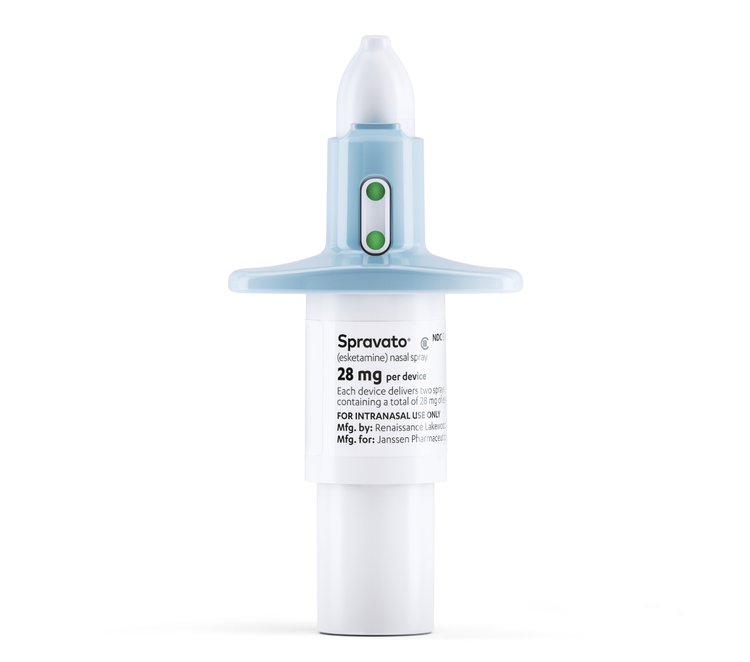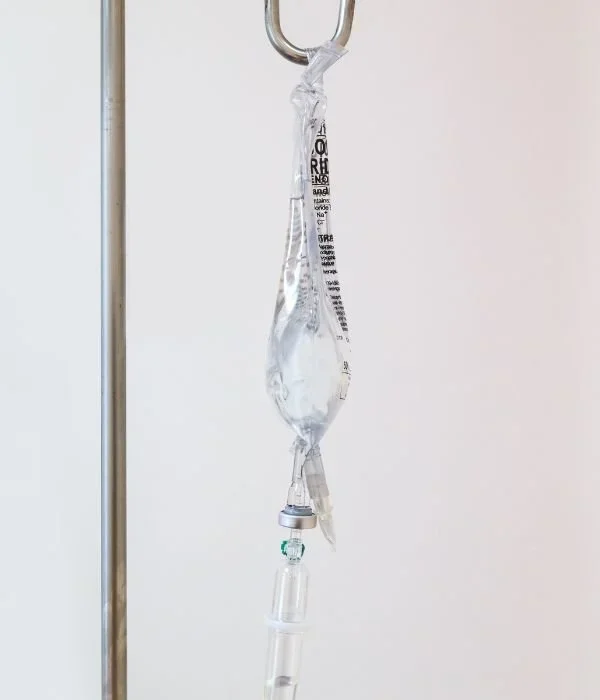How Long Do Spravato Side Effects Last? What Patients Should Know
Have you ever wondered how long do Spravato side effects last? In this article, we’ll explore what patients can expect during and after treatment, including which side effects are most common and how long they typically linger.
We’ll also discuss strategies to reduce discomfort, clarify whether Spravato causes issues like weight gain, and explain how long patients can safely continue the medication.
By the end, you’ll have a clear, practical understanding of what to expect from Spravato therapy and when it’s important to consult your psychiatrist.
Why Spravato causes side effects
As many patients out there, using Spravato may raise concerns about possible side effects. This is understandable, given the fact that Spravato works very differently from traditional antidepressants. However, understanding why these side effects occur can help patients feel more prepared and reassured during treatment.
In truth, Spravato works differently from traditional antidepressants, which is one reason its side effects can feel unusual to patients. Unlike SSRIs that gradually build effects over weeks, Spravato acts quickly on the brain’s glutamate system, leading to:
Rapid mood improvement, sometimes within hours of treatment.
Temporary changes in perception and cognition, which can cause feelings of dissociation or dizziness.
Short-term fluctuations in blood pressure, which is why patients are monitored closely in the clinic.
These changes can temporarily affect balance, thinking, and even blood pressure, which explains why dizziness, dissociation, or sedation are among the most common short-term effects.
Another important consideration is that Spravato is often taken alongside another antidepressant, so sometimes it’s hard to tell which medication is responsible for a given side effect.
Clinical studies show that most of these reactions are short-lived, resolving within a few hours as the drug is metabolized and leaves the system.
What sets Spravato apart, however, is the careful in-clinic monitoring that ensures side effects are managed safely while patients still benefit from its fast-acting relief.
A Closer Look To Spravato Side Effects: Mild & Serious Ones
Like any other prescription medication, Spravato can cause a range of side effects; some mild and short-lived, others more serious and requiring medical attention.
Most patients experience only temporary reactions that fade within hours, but understanding what to expect can make the treatment process less stressful. Let’s break the most important side effects down:
Mild side effects
1. Dizziness
Dizziness is one of the most commonly reported side effects of Spravato. It happens because esketamine temporarily alters activity in the brain regions responsible for balance and spatial awareness.
Since the drug rapidly affects neurotransmitters, patients may feel lightheaded or unsteady, especially within the first hour after dosing. Other feelings include:
A spinning or swaying sensation, similar to vertigo.
Trouble focusing the eyes, which can make reading or looking at screens uncomfortable.
A sense of imbalance when standing or walking, which is why patients are asked to remain seated and under observation during treatment.
Fortunately, this usually subsides as the body metabolizes the medication, and resting in the clinic helps minimize discomfort.
Typical duration: Minutes to a few hours
Caused by: Medications (e.g., antidepressants, sedatives), low blood pressure, dehydration
Resolves: Usually within a day unless the cause persists
2. Nausea
Many patients also report nausea after taking Spravato. This occurs because the medication stimulates certain receptors in the brain that influence both mood and the body’s nausea/vomiting reflex.
In addition, the nasal spray form of Spravato may cause some irritation that triggers queasiness in sensitive individuals. Clinics often prepare for this by offering supportive care or anti-nausea strategies during and after the session.
Typical duration: A few hours to a day
Caused by: Medications, infections, motion sickness, anxiety
Resolves: Once the trigger (e.g., medication) is out of your system
3. Dissociation (feeling detached from reality)
Dissociation is a unique effect of Spravato and one that can feel unsettling at first. It occurs because esketamine temporarily increases glutamate activity, which disrupts normal communication between brain regions that control perception and awareness.
Patients may describe feeling “outside their body” or noticing time passing differently. While unusual, this effect is short-lived and closely monitored in the clinic, often fading within one to two hours.
Typical duration: Minutes to a few hours in acute cases (e.g., from anxiety, trauma, or medication)
Caused by: Stress, trauma, certain drugs (e.g., ketamine, SSRIs initially), dissociative disorders
Resolves: Can be short-lived, but in some mental health conditions, it may recur or persist
serious side effects
While Spravato does not have severe complications for most patients, there are a few side effects that require close monitoring. These reactions are uncommon but important to understand before starting treatment.
1. Increased Blood Pressure
Spravato can cause a temporary rise in blood pressure shortly after dosing. This happens because esketamine stimulates certain receptors that influence cardiovascular activity.
For most patients, the increase is mild and subsides within a few hours, but for those with a history of hypertension or vascular conditions, it requires careful observation. That’s why blood pressure is measured before, during, and after each session to ensure safety.
Typical duration: Can spike temporarily (minutes to hours)
Caused by: Stimulants, stress, medications
Resolves: Once the triggering factor subsides; usually within a few hours if acute
2. Cognitive Impairment (Temporary Difficulty Thinking Clearly)
Some patients experience short-term cognitive difficulties. These difficulties occurs because Spravato alters communication between brain regions responsible for executive function and memory. Such difficulties may include:
Trouble concentrating on tasks, such as reading or following conversations.
Short-term memory lapses, like forgetting small details or recent events.
Slower decision-making, making it harder to think through problems quickly.
While these effects are temporary and usually fade within the same day, they can affect alertness and judgment', which is why patients are advised not to drive or return to demanding tasks immediately after treatment.
Typical duration: Hours to a day
Caused by: Medications, sleep deprivation, anxiety, depression
Resolves: Typically clears up once the cause is addressed (e.g., sleep, hydration, stopping a drug)
what to do to reduce side effects
To be clear, there are many ways patients can reduce the discomfort of Spravato side effects without interfering with treatment effectiveness. Most strategies involve simple steps before, during, and after each session to help the body adjust smoothly.
By following these guidelines under the supervision of your psychiatrist, you can feel more comfortable and confident throughout your Spravato journey.
1. Eat a light meal beforehand
Having a small, balanced meal a few hours before treatment can reduce nausea without increasing the risk of stomach discomfort. Heavy meals should be avoided right before dosing, as they may worsen queasiness.
2. Prioritize hydration
Drinking enough water before your session helps your body process the medication more smoothly and can minimize headaches or dizziness. Avoid caffeine or alcohol, as they may intensify side effects.
3. Plan for rest after treatment
Because sedation and temporary cognitive changes are common, scheduling downtime after each session allows your body and mind to recover fully. Arrange transportation home and avoid driving or engaging in demanding tasks until the next day.
4. Practice relaxation techniques
Gentle breathing exercises or mindfulness during the session can ease feelings of dissociation or anxiety. These techniques help patients stay calm while side effects pass naturally.
how long does spravato stay in your system?
Spravato does not linger in the body for very long, but its effects on mood can last much longer than the drug itself. After administration, esketamine (the active ingredient in Spravato) is absorbed quickly and peaks in the bloodstream within about 20 to 40 minutes.
The body then metabolizes it primarily through the liver, and most of the drug is cleared within 4 to 5 hours.
However, even after the drug itself has been processed, its impact on brain signaling continues for days, which is why patients often feel mood relief between treatments.
Unique to Spravato is the fact that while the chemical leaves the body quickly, the neuroplasticity changes it triggers, meaning the brain’s ability to form new, healthier connections, may last longer and contribute to sustained improvement.
In practical terms, these include:
Short-term presence: Detectable in the bloodstream for just a few hours after dosing.
Extended effects: Changes in mood and perception can continue for days, even after the drug is cleared.
Individual variation: Factors like liver health, body weight, and other medications can influence how quickly Spravato is processed.
Safety net: Because clearance happens relatively quickly, patients aren’t left with drug build-up in their system, reducing long-term risks.
This combination of fast clearance with longer-lasting therapeutic benefits is what makes Spravato different from many traditional antidepressants, which take weeks to build up in the body before relief is felt.
is spravato right for me?
Deciding whether Spravato is the right treatment is not something patients should do on their own; it requires careful evaluation with a psychiatrist. This is because Spravato works differently from traditional antidepressants and carries specific monitoring requirements to ensure both safety and effectiveness.
Consulting a psychiatrist first is crucial, as they can review your medical history, current medications, and mental health needs before recommending the treatment. Not everyone is an ideal candidate, and professional guidance helps minimize risks while maximizing potential benefits.
If you’re wondering whether Spravato might be a good fit, here are four important steps to consider:
Assess your treatment history: Have other antidepressants failed to provide enough relief?
Review your medical background: Conditions like uncontrolled high blood pressure or a history of psychosis may require caution.
Evaluate your lifestyle and support system: Since you’ll need clinic visits and monitoring, having reliable transportation and support is key.
Discuss your goals with your psychiatrist: Whether it’s relief from persistent depression or reducing suicidal thoughts, clarifying your goals helps shape the treatment plan.
By walking through these steps with your psychiatrist, you can make a well-informed decision about whether Spravato aligns with your personal needs and overall mental health strategy.
key takeaways
Spravato can cause both mild and serious side effects, but most are short-lived and closely monitored in the clinic. While the medication leaves the body within hours, its positive effects on mood and brain function can last much longer.
Spravato does not typically cause weight gain, and treatment plans vary depending on individual needs. The most important step is consulting a psychiatrist, who can help determine whether Spravato is the right option for your mental health journey.
If you’re considering Spravato treatment and want expert guidance, our team at Wele Clinic is here to help you explore your options safely. Visit our Spravato treatment page, contact us though our form or call us in +1 646-874-9340 to schedule a consultation.
Start Your Recovery Today with spavato treatment in NYC
Fill-in the form below and we will contact you as soon as possible:
Where To Find Us
Wele Clinic | Ketamine & Spravato Treatment NYC
1123 Broadway # 1117, New York, NY 10010, United States
Weekly hours:
Thursday: 9 AM - 6 PM
Friday: 9 AM - 6 PM
Saturday: Closed
Sunday: Closed
Monday: 9 AM - 6 PM
Tuesday: 9 AM - 6 PM
Wednesday: 9 AM - 6 PM
FreQuently Asked Questions
How Long Do Spravato Side Effects Last
1. Which are the 3 most common side effects of Spravato?
The three most common side effects are dizziness, nausea, and dissociation (a temporary feeling of detachment from reality). These effects usually occur within the first hour after treatment as the medication takes effect on the brain’s glutamate system. While they can feel uncomfortable, most patients find that these reactions are mild and fade within a few hours. Clinics monitor patients closely during this time to ensure their safety and comfort.
2. How long does Spravato stay in your system?
Spravato is absorbed quickly, reaching peak levels in the bloodstream within 20–40 minutes of administration. Most of the drug is metabolized and cleared from the body within 4–5 hours. However, its therapeutic effects often last longer, because Spravato triggers changes in brain signaling that can improve mood for days. This is why treatment is typically given once or twice a week, depending on the patient’s needs.
3. Does Spravato cause weight gain?
Current clinical evidence shows that Spravato does not cause weight gain. This sets it apart from some traditional antidepressants, which can alter appetite and metabolism. If weight changes do occur, they are more likely related to other medications taken alongside Spravato or lifestyle factors. Patients concerned about this issue should discuss it with their psychiatrist to ensure the best treatment plan.
4. How long can you take Spravato?
There is no single limit on how long a patient can take Spravato. It varies depending on treatment response and personal health goals. Some people use it for several months to stabilize their depression, while others continue maintenance therapy for a year or more. Psychiatrists regularly review progress to determine whether ongoing sessions are still beneficial. This individualized approach ensures that treatment is both safe and effective over time.
5. Why is it important to consult a psychiatrist before taking Spravato?
A psychiatrist plays a crucial role in determining whether Spravato is the right option for you. Since the drug can cause side effects such as elevated blood pressure or dissociation, a thorough review of your medical history is necessary before starting treatment. Psychiatrists also assess your current medications to avoid harmful interactions. Most importantly, they provide ongoing monitoring to make sure the treatment remains safe and beneficial for your mental health.
6. Is Spravato prescribed?
Yes, Spravato is a prescription-only medication and cannot be obtained over the counter. It must be administered in a certified clinic by a licensed healthcare professional due to the need for monitoring after each dose. Patients are observed for at least two hours after administration to ensure their safety and manage any side effects. This controlled setting makes Spravato both effective and safe for individuals with treatment-resistant depression.
This article was written by Dr. Mehdi Omidvari, founder of Wele Clinic.










